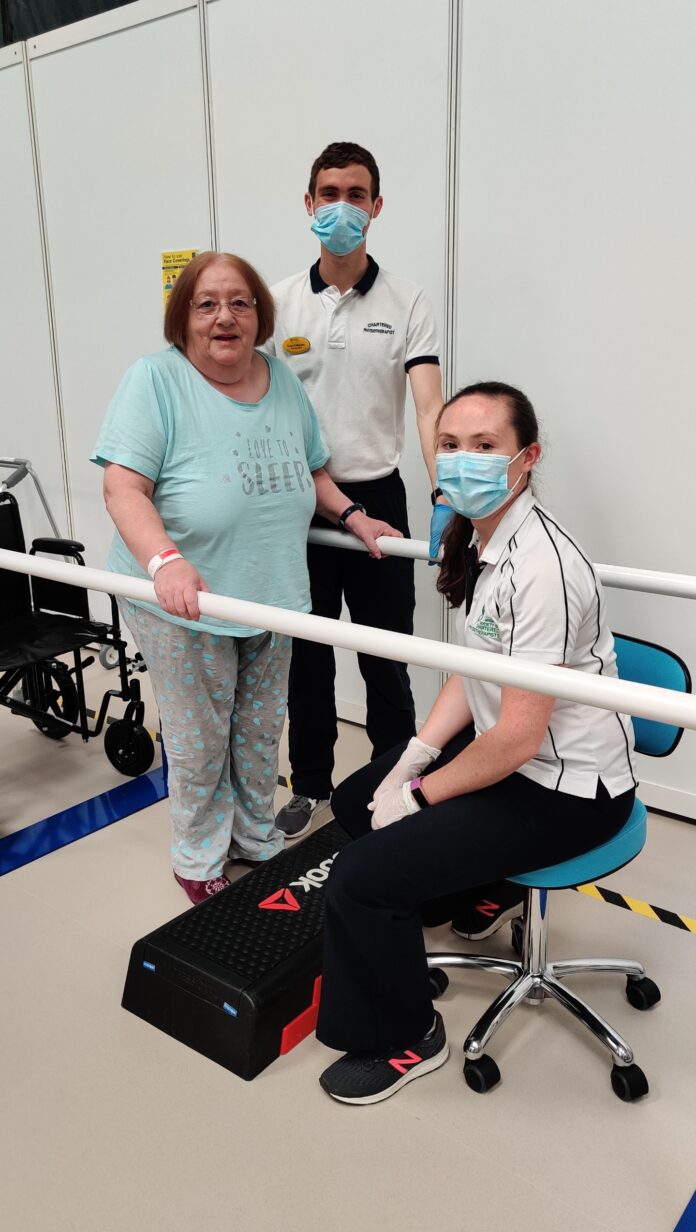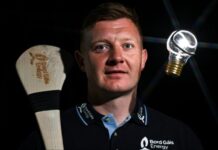PHYSIOTHERAPISTS at UL Hospitals Group will mark World Physiotherapy Day this Tuesday September 8th, with lunchtime exercise classes and information sessions highlighting how their work that came to the fore during the COVID-19 pandemic can enhance the health and wellbeing of all health service staff.
Media coverage of the pandemic has raised public understanding of physiotherapy beyond traditional misconceptions of a profession for treatment of sports and musculoskeletal injury, especially television footage that offered unprecedented insight into the role of physiotherapists in critical care settings.
However, Health and Social Care Professionals (HSCP) emphasise that this is only the beginning of the patient’s interaction with physiotherapy. Rehabilitation from COVID-19 involves ongoing input from physiotherapy, and physiotherapists in UL Hospitals Group are uniquely placed to demonstrate how this ongoing physiotherapy can benefit health service staff as well as patients.
Local activities to mark World Physiotherapy Day—an annual initiative of the World Physiotherapy Organisation promoted nationally by the Irish Society of Chartered Physiotherapists (ISCP)—are centred in the Intermediate Care Facility (ICF) at UL Sports Arena, opened in June for non-COVID or post-COVID patients who need ongoing care and who would benefit from further rehabilitation before discharge.
Conor O’Mahony, a Staff Grade Physiotherapist who is currently based at the ICF, described the ICF as a “revolutionary” facility with a distinct focus on patient rehabilitation where physiotherapy truly comes into its own.
“The rehabilitation journey for patients at the ICF is only made possible by collaboration between physiotherapists and the extensive multi-disciplinary team, which includes doctors, dietitians, occupational therapists, speech and language therapists, nursing staff, health care assistants and medical social workers,” he said.
Conor explained: “Rehabilitation is not solely focused on ensuring that patients ‘can manage’, but on optimising their quality of life and well-being. The ICF started as a blank canvas, and is now an ideal rehabilitation setting where various Allied Health professions merge effectively as one team. This maximises the quality of the patient-centred, holistic care, and progresses each individual team members’ growth and development.”
There are currently three physiotherapists and two therapy assistants on site. Physiotherapy students from the University of Limerick have benefited from completing unique educational work placements in the facility, as have students from the other disciplines.
Physiotherapy is focused on optimising patients’ capabilities and function in order to achieve their goals and prepare them for discharge. According to Conor O’Mahony, “This is often the final step in a long intensive recovery, both for post-COVID and general patients alike.
“The physiotherapy caseload caters for patients across a broad spectrum, ranging from Orthopaedic, Neurology, and mobility to cardiac and respiratory care. The physiotherapy service benefits from access to a specialised rehabilitation gymnasium and has capacity for longer and more intensive treatment sessions.
“There is a distinct focus on the holistic management of the patient with sociable but physically distanced exercise classes being only one fixture in the patient’s day of activities organised by the multi-disciplinary team.
As with any healthcare project, patient feedback is the most important measure of success for the ICF, and this has been overwhelmingly positive.
Rose Mannion from Co Tipperary was transferred to the ICF for six weeks to further her rehabilitation following an intensive care admission with COVID-19. “The ICF is a wonderful success story,” Rose said. “The physiotherapists took me through a rigorous workout over my six-week admission. This greatly improved my physical abilities, and set me up nicely for my discharge home.”
Buoyed by the unanimous approval of patients for their work, the physiotherapists have broadened their focus to take in their colleagues at the ICF, almost three-quarters (72%) of whom admit that their personal exercise regimes have suffered during the pandemic.
A local survey of staff in the facility finds that the majority (67%) are not achieving the recommended guideline of at least 150 minutes of aerobic exercise per week, and 86% skipping the prescribed three strengthening sessions per week.
Using World Physiotherapy Day as their launch platform, the physiotherapists at the ICF have organised socially distanced exercise challenges for staff, as well as educational sessions that are aimed at raising awareness of physiotherapy and its benefits. To ensure good intentions are put into practice beyond World Physiotherapy Day, the Allied Health team has already subscribed to the HSE’s annual ‘Step Challenge’ competition.
“While the COVID-19 pandemic has been detrimental to events and occasions all over the globe, the ICF is a definite success story,” Conor O’Mahony said. “On World Physiotherapy Day, it seems fitting to ensure all staff and patients can benefit from the positive patient experiences of physiotherapy in the ICF.”
Group Lead for Allied Health in UL Hospitals Group, Fiona Steed, said she was delighted that World Physiotherapy Day was being used to highlight the role of physiotherapists in the Intermediate Care Facility and across UL Hospitals Group.
“We are blessed with many talented physiotherapists working across the Group and in many different settings, treating everything from chronic disease management, in-patient stay, acute injuries and recovery post-operation and post-stroke, to name but a few.
“Physiotherapists form part of the much wider Allied Health team in UL Hospitals, which consists of seven of the Health and Social Care Professional (HSCP) groupings, also including Dietetics, Occupational Therapy, Speech & Language Therapy, Medical Social Work, Podiatry and Neurophysiology Technicians,” Fiona added.











